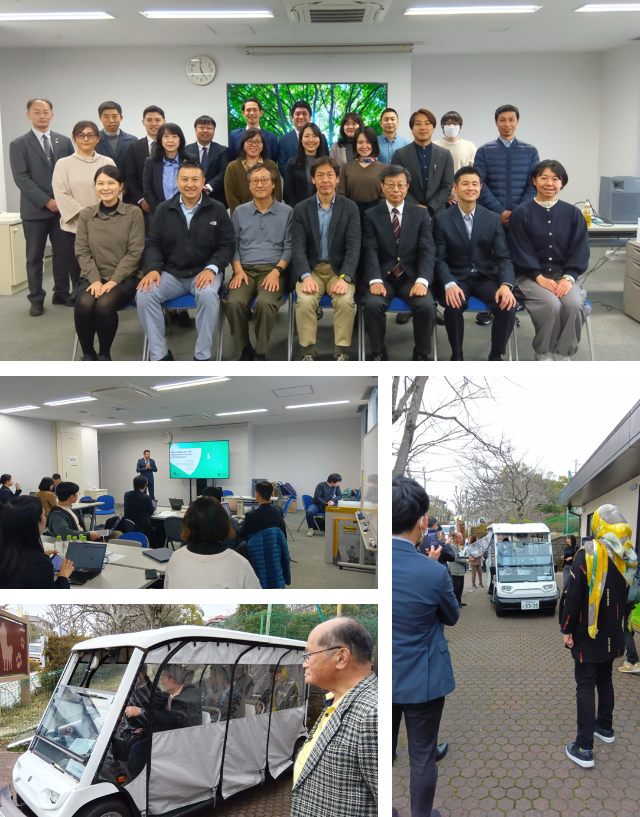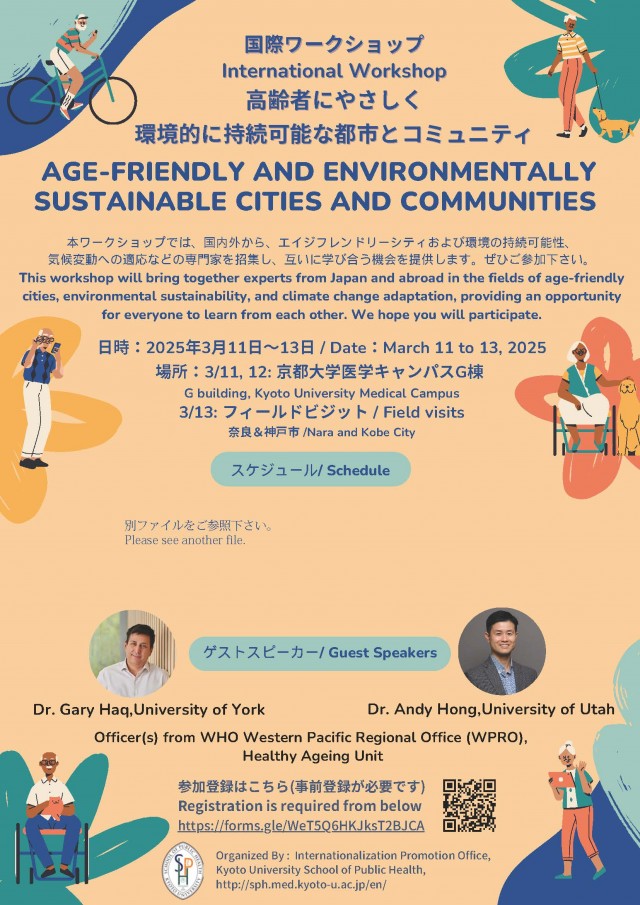Activity Report: Workshop on Age-Friendly and Environmentally Sustainable Cities and Communities (AFES Kyoto) Successfully Held at Kyoto University
From March 11 to 13, 2025, the Workshop on Age-Friendly and Environmentally Sustainable Cities and Communities (AFES) was successfully held at Kyoto University School of Public Health (KUSPH) with sponsorship from the Preventive Medicine Center and the Healthy City Development Joint Research Division of Chiba University. This international workshop brought together researchers, municipal officers, and practitioners from Europe, the United States, and the Asia-Pacific region, including guest speakers Dr Gary Haq (University of York), Dr Andy Hong (University of Utah), and officers from the WHO Western Pacific Regional Office (WPRO), Healthy Ageing Unit. The event facilitated an exchange of insights and collaboration on innovative strategies that integrate age-friendly initiatives with environmental sustainability in urban planning and community development.
Day 1: Keynote Presentations and Scoping Reviews
The workshop commenced with a welcome remark by Dr. Ayako Kohno from Kyoto University, followed by an interactive ice-breaking session where participants introduced themselves. The morning session featured keynote presentations from representatives of the WHO Western Pacific Regional Office, the University of York, and the University of Utah, who shared global perspectives on the development of age-friendly and environmentally sustainable cities. A keynote presentation from Japan provided insights into domestic efforts in this field.
In the afternoon, scoping review presentations on age-friendly cities in China, South Korea, and Japan were delivered by experts from Tsinghua University, Seoul National University, and Kyoto University. A world café discussion was held, where participants exchanged ideas on designing age-friendly and climate-resilient cities.
Day 2: Multi-Stakeholder Collaboration and Policy Recommendations
The second day focused on multi-stakeholder collaboration and policy recommendations. Case studies on age-friendly initiatives in Japan, including Akita City and Kanagawa Prefecture, were introduced. Additionally, private sector contributions were highlighted through presentations by Yamaha Motor Co., LTD. and Amita Holdings on sustainable mobility solutions and environmental projects.
The World Café discussion provided a platform for participants—including representatives from WHO, government officials, researchers, and students—to exchange insights on the challenges and opportunities in implementing policies and fostering cross-sectoral collaboration. Discussions covered diverse perspectives from different regions, with a particular focus on the UK, US, and Asia. The session concluded with key policy recommendations aimed at strengthening cooperation and advancing age-friendly and environmentally sustainable urban development.
Day 3: Field Visits to Nara and Kobe
On the final day, participants embarked on a field visit to Oji Town in Nara Prefecture to observe Green Slow Mobility initiatives, followed by a tour of a recycling center in Kobe City. These visits provided practical insights into sustainable urban planning and waste management strategies, reinforcing key themes discussed during the workshop.
The AFES Kyoto workshop established a strong international network, fostering collaboration on age-friendly and sustainable urban development. The insights and policy recommendations from this event are expected to guide future research and cross-regional initiatives, driving real-world impact.

